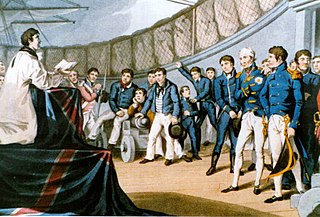Related Research Articles

Otto IV was the Holy Roman Emperor from 1209 until his death.

Robert I, popularly known as Robert the Bruce, was King of Scots from 1306 to his death in 1329. One of the most renowned warriors of his generation, Robert eventually led Scotland during the First War of Scottish Independence against England. He fought successfully during his reign to regain Scotland's place as an independent kingdom and is now revered in Scotland as a national hero.
John Comyn III of Badenoch, nicknamed the Red, was a leading Scottish baron and magnate who played an important role in the First War of Scottish Independence. He served as Guardian of Scotland after the forced abdication of his uncle, King John Balliol, in 1296, and for a time commanded the defence of Scotland against English attacks. Comyn was stabbed to death by Robert the Bruce before the altar at the church of the Greyfriars at Dumfries.

Sir Alfred Comyn Lyall was a British civil servant, literary historian and poet.
Victor IV was elected as a Ghibelline antipope in 1159, following the death of Pope Adrian IV and the election of Alexander III. His election was supported by the Emperor Frederick Barbarossa. He took the name Victor IV, not accounting for Antipope Victor IV of 1138, whose holding of the papal office was deemed illegitimate.

The Guardians of Scotland were regents who governed the Kingdom of Scotland from 1286 until 1292 and from 1296 until 1306. During the many years of minority in Scotland's subsequent history, there were many guardians of Scotland and the post was a significant constitutional feature in the course of development for politics in the country.

The Battle of Roslin on 24 February 1303 was a Scottish victory in the First War of Scottish Independence. It took place near the village of Roslin, where a force led by the Scots John Comyn and Sir Simon Fraser ambushed and defeated an English reconnaissance party under Lord John Segrave.
John Comyn (Cumyn) was Lord of Badenoch in Scotland. He was Justiciar of Galloway in 1258. He held lands in Nithsdale and Tynedale.
William Rowe Lyall was an English churchman, Dean of Canterbury from 1845 to 1857.

Sir John Comyns SL, of Writtle in Essex, was an English judge and Member of Parliament.

Stephen George Comyn was an English naval chaplain who served with Lord Nelson at the Battle of the Nile and Battle of Copenhagen. He was a close friend of Nelson and is said to have been his favourite chaplain.

Clan Cumming, also known as Clan Comyn, is a Scottish clan from the central Highlands that played a major role in the history of 13th-century Scotland and in the Wars of Scottish Independence. The Clan Comyn were the most powerful family in 13th-century Scotland, until they were defeated in civil war by their rival to the Scottish throne, Robert the Bruce.
Pupils of Westminster School and Charterhouse School played a cricket match in London on 5 August 1794 which was recorded in the earliest known scorecard of a schools match.
Sir Christopher Seton (1278–1306), also known as Christopher de Seton, was a 13th-century noble, who held lands in England and Scotland. He was a supporter of Robert the Bruce and obtained Robert's sister's hand in marriage. Present during the killing of John Comyn, Lord of Badenoch at Greyfriars Church, Dumfries, he also killed Sir Robert Comyn, who had rushed to Badenoch's aid. Seton was captured at Loch Doon Castle and executed at Dumfries in 1306.
The Archdeacon of Ludlow is a senior ecclesiastical officer within the Diocese of Hereford. Prior to 1876 the post was known by its previous title of Archdeacon of Shropshire or alternatively as the Archdeacon of Salop in the Diocese of Hereford.
Michael Comyn was an Irish barrister, Fianna Fáil Senator and later a judge on the Circuit Court. He was also a member of the British Civil Service, geologist, discoverer and operator of mines, and finally "litigant in one of the longest cases ever heard in the Irish courts". As a lawyer-turned litigant, he recounted that "it was his last case, and he won it: a far cry from his first case as a young barrister...it was a bad case and I did it badly".
Robert Buckley Comyn was a British judge who served as Chief Justice of the Madras High Court from 1835 to 1842.

George Harold Arthur Comyns Berkeley was an obstetric physician, gynaecological surgeon and medical writer. Berkeley was most notable along with William Blair-Bell and Sir William Sinclair for creating the British College of Obstetricians and Gynaecologists. Berkeley was also noted for his writing collaborations with Victor Bonney, the book A Textbook of Gynaecological Surgery that is still considered a medical classic. It was as teacher that he excelled.
Thomas Cooke was an English priest in the 17th century.
References
- ↑ "Comyn, Robert (CMN693R)". A Cambridge Alumni Database. University of Cambridge.
- ↑ Alumni Oxonienses 1500-1714, Colericke-Coverley
- ↑ Horn, Joyce M. (2003), Fasti Ecclesiae Anglicanae 1541–1857, vol. 10, pp. 12–14